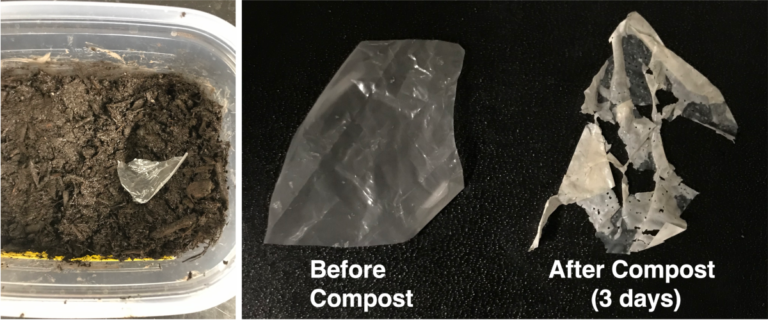
🛍️A plastic mixed with enzymes that decomposes
Plastics don't decompose naturally. But researchers have found a way to make plastic rot. In a few years, the new type of plastic can be on the market.
Share this story!
Humans are bad at recycling plastics, we can see signs of that everyday in nature. And the statistics also speak for it self. In the USA, for example, just under nine percent of all plastic is recycled, while the rest largely ends up in large landfills. Now, according to a press release, a research team from Berkeley Lab wants to make it easier to recycle plastic. They are working on a plastic that decomposes in nature.
The solution they have found is based on enzymes. The researchers mixed two commercially available enzymes into plastic, and the results were striking. It turned out that the plastic began to decompose when the researchers rinsed it with ordinary hot tap water or when it was put in the soil. Within a few weeks, the plastic had broken down completely into its monomers (starting molecules). There weren't even any microplastics left.

To reach this effect, the plastic needs to be made with an exact proportion of the right enzymes. There needs to be only 0.02 percent of the enzymes in the plastic. As the enzymes cost less than USD 11.91 per kilo, the cost of the plastic does not increase by more than a penny per kilo of plastic.
The enzymes the researchers use are also a bit picky when it comes to food. This means that they do not start to break down the plastic immediately, but only when they are rinsed with hot water or come into contact with soil. Therefore, the plastic is not so suitable for coffee cups and bags for compost soil, but for most other purposes that do not include liquids or soil.
Today's plastics get less strong when recycled, which is a problem. With this method, recycled plastic could be as strong as newly produces plastics.
It is also possible to make both soft and hard plastic with the raw material that remains when it is decomposed. The researchers have filed a patent application so that in a few years, completely degradable plastic can enter the market.
Read the full study here.
Image: Pixabay / flockine
By becoming a premium supporter, you help in the creation and sharing of fact-based optimistic news all over the world.


